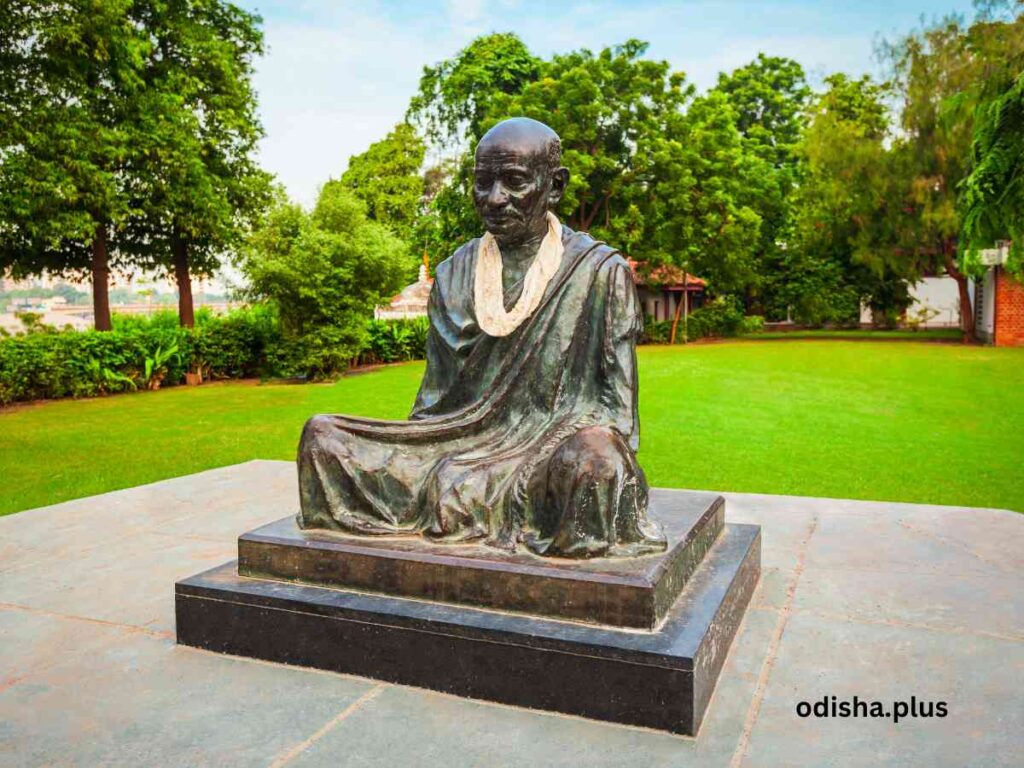In today’s context, it seems unlikely to anticipate transformative individual and community value-based voluntary actions
Ashok Kumar Nayak

Wishes on the 155th birthday of Gandhiji, celebrated widely. This reflection is response to a post of a friend, who is a grounded, knowledgeable, respected CSO personality. Who has been relentlessly trying for sustainable socio-economic, environmental and cultural development of remote tribal communities in Odisha, has been behind many policy level contributions for the government. He is Mr. Achyut Das, we called him Achyut Bhai out of our love and respect.
His thoughts always rooted in experiential learning. His particular thoughts and emphasis on Gram Swaraj, focusing on value based individual and collective volunteer actions for societal transformation, which is truly important but somewhat looks idealist to me and that prompt me to write this article. I have my own kind of understanding or the lack of it about Gandhian thoughts and current societal trend.
In today’s context, it seems unlikely to anticipate transformative individual and community value-based voluntary actions. Over the past 3-4 decades, almost every action of individuals, communities and societies has been driven by monetary gains. Here are a couple of examples from my childhood days:
Marriages in villages and cultural functions such as Ramleela: Our village Dhuliswar, is a small village near Cuttack and even my uncle’s village in Jagatsinghpur, I experienced the youths, men and women volunteered to do tasks which were considered common moral obligations. Big utensils from the village club were used free of cost by families for occasions.
Normally there was no culture of everyone coming to the family function with a wrapped gift. Contributions to village cultural celebrations came in the form of rice, pulses, vegetables, timber and bamboo, within the acceptable limits of household production. While money was also contributed, it was not the central focus. Many activities are not attached to money, rather ignored the role of money.
However, I am not romanticizing those village lifestyles or societal trends. The point here is the societal fabric, value system was different. And people were not so exposed to the material comforts, so aspirations for consumerism during those periods were almost not there.
Transition of Society:
Now, society has transitioned. Festivals and celebrations in villages are fancier and glittery. Tent houses and caterers have taken over the activities and volunteerism has diminished and money became at center stage of every actions. Villages are now replicas of cities. Traditional village institutions like Vyayam Shala (village gym), Bhagabata Tungi (a place where everyday evening people gather and discuss on mythology), Kotha Pokhari (community pond) and Gai Gotha (cattle herds) are disappearing. This transition is from tradition to modernity. Societal transition has been always there, we can see in respected traditional Odia literature like “Magunira Sagada” and “Daka Munisi”. But current transition to consumerism has made individuals and society more mindless, blind and selfish, contributing to issues like global warming and other economic and societal problems.
Education System:
The current education system is far from value-based learning. Quality education is remote, as the public education system is being overshadowed by private institutions. The children coming out from big city based big infra private institutions have single point aspirations for a paying job. Public education system is struggling with many issues from infrastructure to adequate quality teacher. But in our kind of country there should be strong public education system that need cater and serve all children of our country in equal weightage.
Parental Aspirations:
Big worries are the vacuum and hollowness generally seen among average parents. The parents have only target to educate their children for high earnings and positions aiming for a life filled with material comforts. They find it is not necessary to understand and connect with fellow, community, society, nature, water, soil, insect, animal, air surrounded to them. Only possession of money would provide solutions in life. So there is a gross disconnect between individual lives and emerging local and global issues is concerning.
Gram Swaraj:
The concept of Gram Swaraj is not just a philosophical thought of Gandhi, but also goes beyond the ideas propagated by isolated individuals or groups claiming to be Gandhians.
Rather all villages have the potential to become self-sustaining socio-economic and political units. This idea, inspired by Gandhi, offers solutions to current crises like climate change, food security, livelihoods, health and pollution. It promotes sustainable community living. In India we have around 6.5 lakh villages.
(The Author is a development professional, associated with research and advocacy on developmental issues. Views expressed are personal)

























